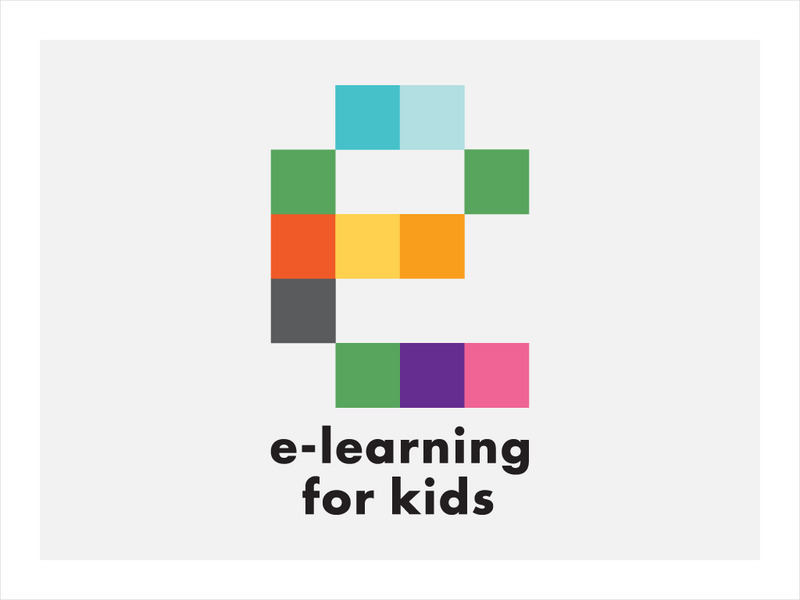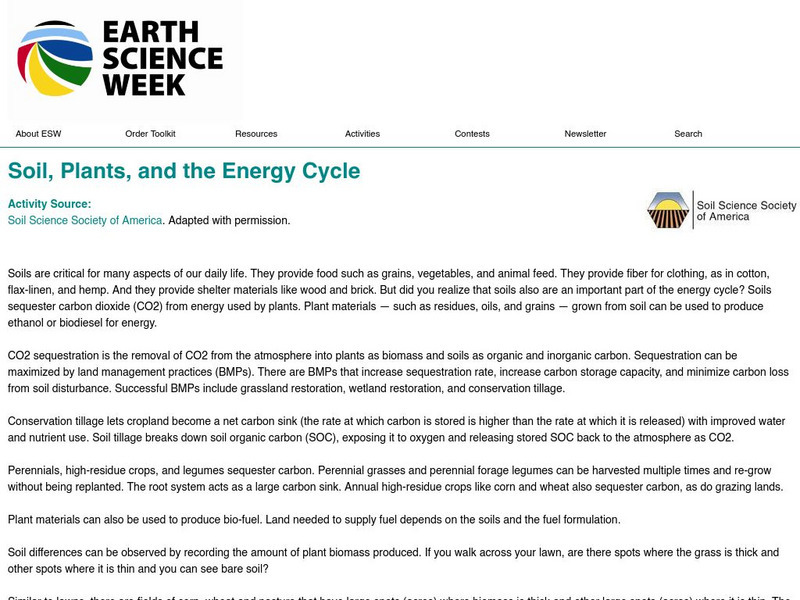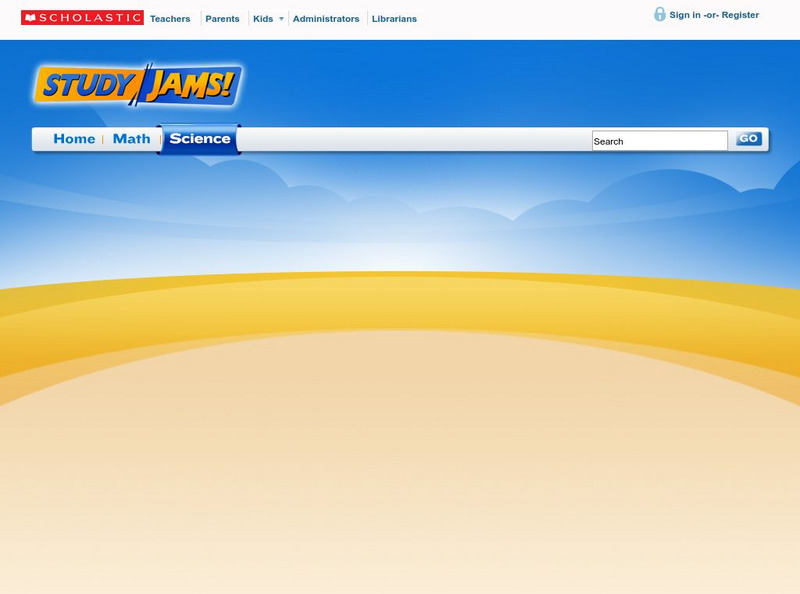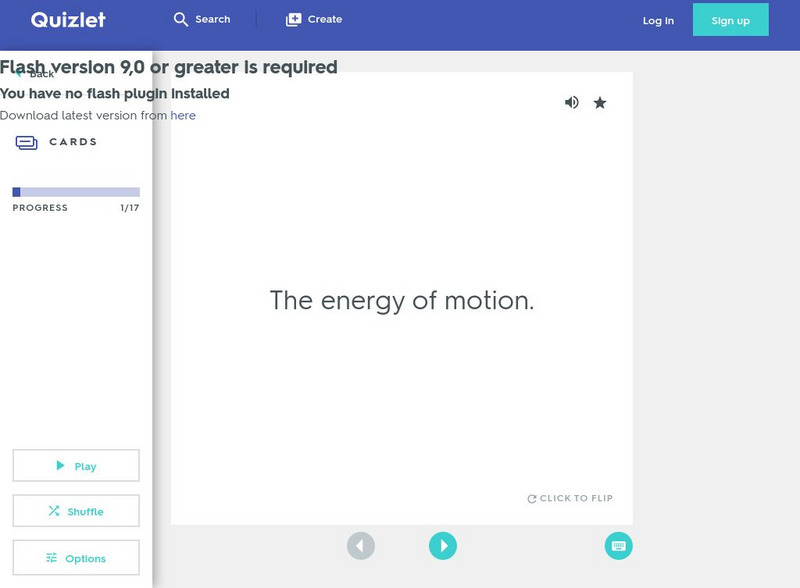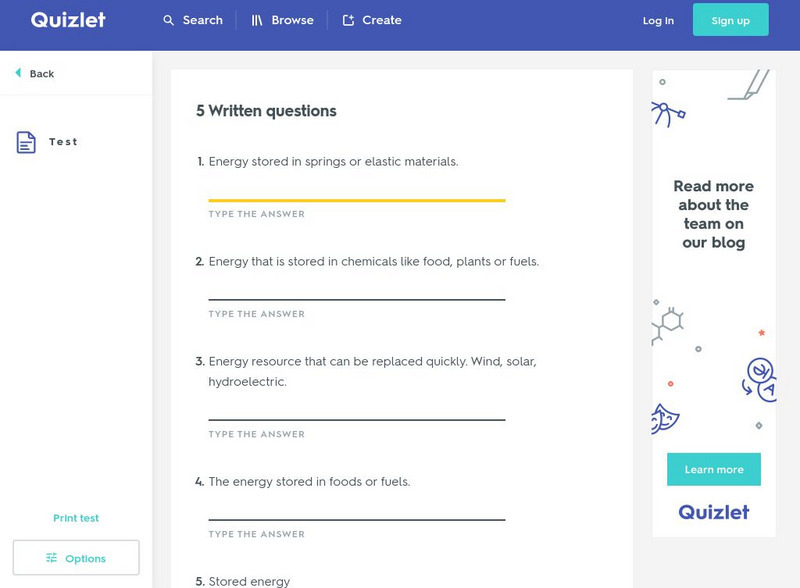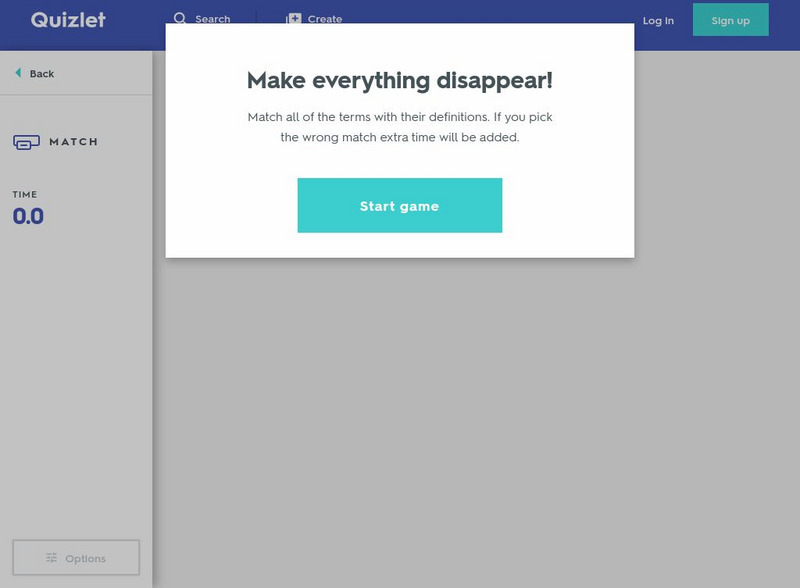Other
Florida Dept. Of Education: Conservation of Renewable and Nonrenewable Resources
In this learning module, students learn to differentiate between renewable and nonrenewable resources, and identify resources that fit into each category. It explains the environmental effects of using nonrenewable resources, such as...
PBS
Pbs Teachers: Exploring Alternative Energy Sources
Calculate the increased cost of heating homes and fueling cars since the energy crisis. Investigate alternative renewable and nonrenewable energy sources that can be used to decrease Americans' dependency on fossil fuels.
CK-12 Foundation
Ck 12: Life Science: 12.29 Renewable Resources
Learn how some renewable resources contribute to alternative energy sources.
E-learning for Kids
E Learning for Kids: Scotland: What Is the Difference Between Renewable and Nonrenewable Resources?
Looks at types of natural resources that can be used for energy, and the difference between renewable and nonrenewable energy sources.
CK-12 Foundation
Ck 12: Earth Science: Renewable Versus Non Renewable Resources
[Free Registration/Login may be required to access all resource tools.] Distinguishes between renewable and nonrenewable resources.
E-learning for Kids
E Learning for Kids: Science: Cruise Ship: What Sort of Energy Is Provided by Water?
Shana is learning about water. Help her discover all the different ways water can provide us with energy.
E-learning for Kids
E Learning for Kids: Science: Cyprus Dancing School: What Sort of Energy Is Provided by the Wind?
Chara is finding out a lot about the wind and how it can provide energy to us. Join her in Cyprus to learn along with her.
American Geosciences Institute
American Geosciences Institute: Earth Science Week: Soil, Plants, and the Energy Cycle
Students explore what kind and how much bio-mass can be produced in an area around your city or town. They figure how many gallons of fuel can be expected from one acre of crop land, and how much carbon can be sequestered in the local area.
Ducksters
Ducksters: Physics for Kids: Energy
Kids learn about the science behind Energy including its different forms such as chemical, electrical, heat, and gravitational. When is energy considered renewable or nonrenewable?
Ducksters
Ducksters: Environment for Kids: Wave and Tidal Energy
Kids learn about wave and tidal energy and how this renewable power can help the environment. Teach students about this new technology.
Ducksters
Ducksters: Environment for Kids: Geothermal Energy
Kids learn about geothermal energy and how this renewable power can help the environment. Teach students about heat pumps and electric plants.
Energy for Sustainable Development
Esd Bulgaria: Kids & Energy: Electricity
Electricity is the flow of electrical power or charge. It is a secondary energy source which means that we get it from the conversion of other sources of energy, like coal, natural gas, oil, nuclear power and other natural sources, which...
Scholastic
Scholastic: Study Jams! Science: Energy, Light and Sound: Natural Resources
A slideshow and a short quiz on natural resources, the difference between renewable and nonrenewable resources, and the impact humans have on the Earth's natural resources.
FT Exploring
Ft Exploring: Wind Turbines and the Energy in Wind
Discover the science concepts behind wind turbines and wind energy.
Ducksters
Ducksters: Environment for Kids: Biomass Energy
Kids learn about biomass energy and how this renewable power can help the environment. Teach students about biodiesel, ethanol, and methane gas.
Ducksters
Ducksters: Environment for Kids: Hydropower Energy
Kids learn about hydropower energy and how this renewable power can help the environment. Teach students about biodiesel, ethanol, and methane gas.
Georgia Department of Education
Ga Virtual Learning: Human Impact
In this comprehensive interactive tutorial you will learn how we can reduce our carbon footprint by using alternate energy sources.
Ducksters
Ducksters: Environment for Kids: Solar Energy
Kids learn about solar energy and how this renewable power can help the environment. Teach students about solar cells and using the sun for heat.
Scholastic
Scholastic: Study Jams! Science: Energy, Light and Sound: Fossil Fuels
A slideshow and a short quiz on the types of fossil fuels we use and the impact this has on the environment.
Quizlet
Quizlet: 6th Grade Science: Energy Vocabulary: Flashcards
This set of interactive flashcards focuses on 17 terms related to energy and their definitions. These include the following types of energy: Kinetic, Sound, Potential, Elastic potential, Chemical, Gravitational Potential, Electrical,...
Quizlet
Quizlet: 6th Grade Science: Energy Vocabulary: Test
This interactive assessment features 6 matching, 6 multiple-choice, and 5 true/false question over 17 terms related to energy and their definitions. These include the following: Kinetic, Sound, Potential, Elastic potential, Chemical,...
Quizlet
Quizlet: 6th Grade Science: Energy Vocabulary: Match
In this interactive game, students match 17 terms related to energy with their definitions. These include the following: Kinetic, Sound, Potential, Elastic potential, Chemical, Gravitational Potential, Electrical, Light, Energy, Energy...
US Department of Energy
U.s. Department of Energy: Wind Energy
This short site provides an overview of wind power, along with links to technical information on wind power, history of wind power, and more.
Museum of Science
The Atoms Family
Let this classic family of monsters guide you as you learn about energy. Interactive exercises, experiments, and demonstrations help to build knowledge and raise questions.



